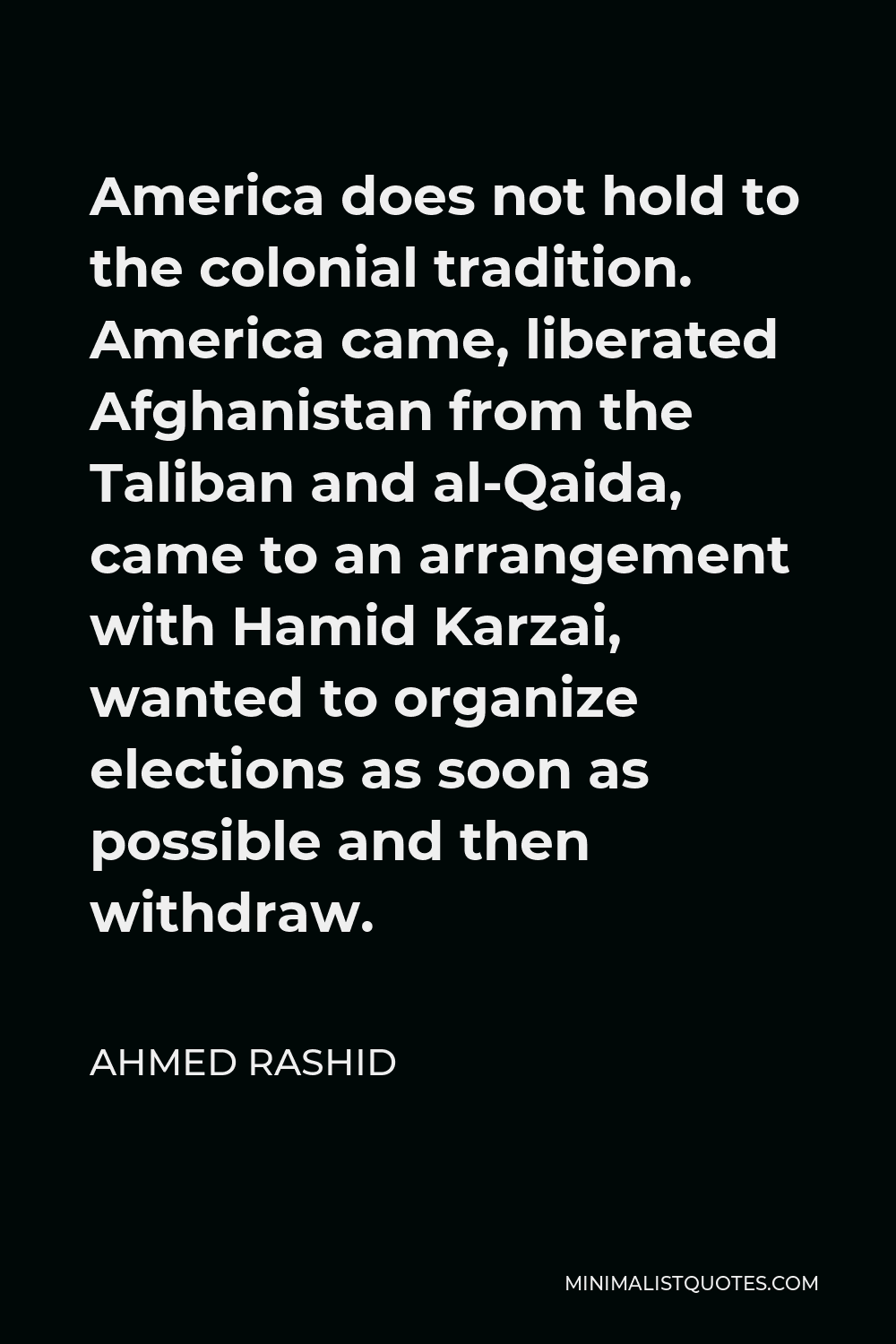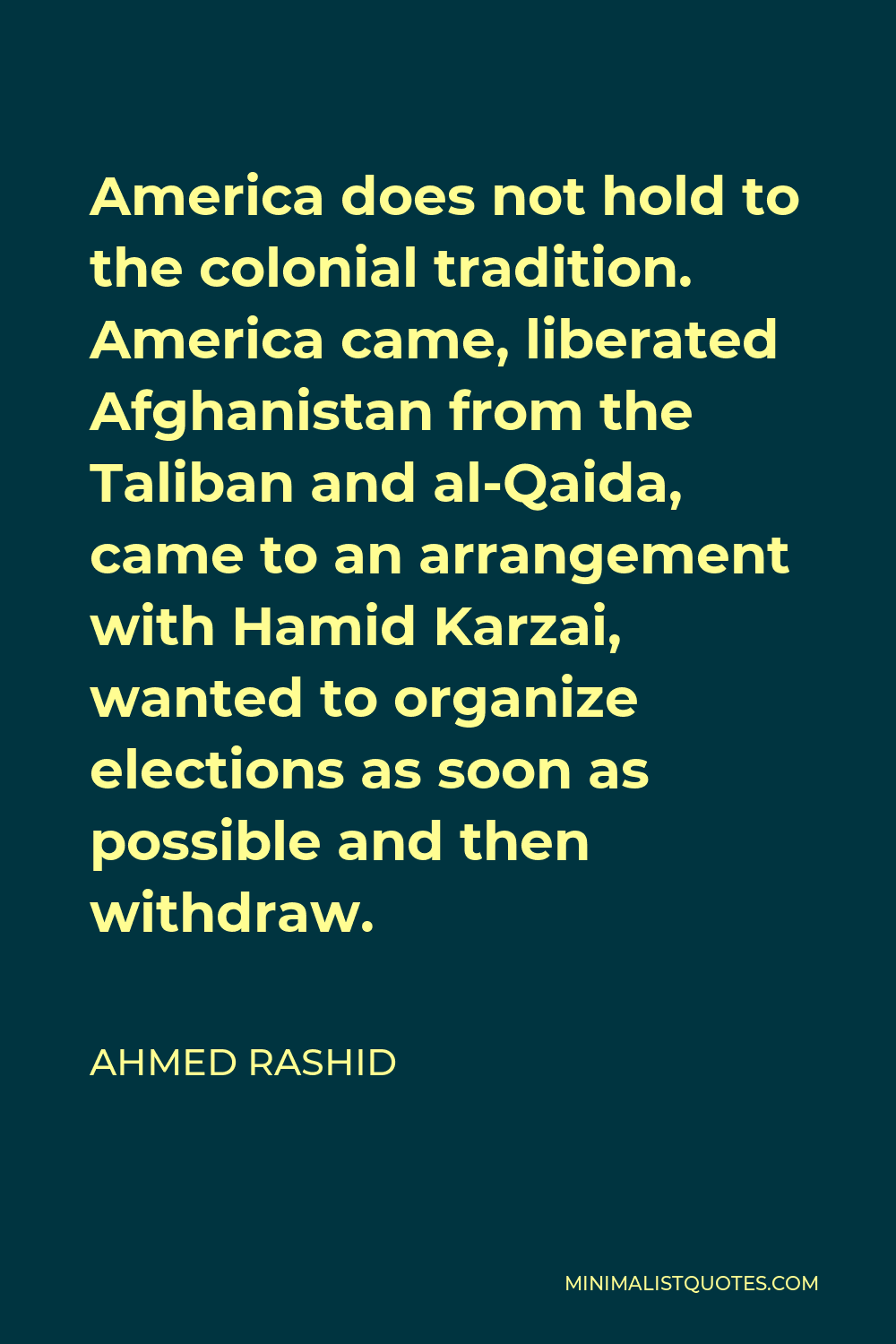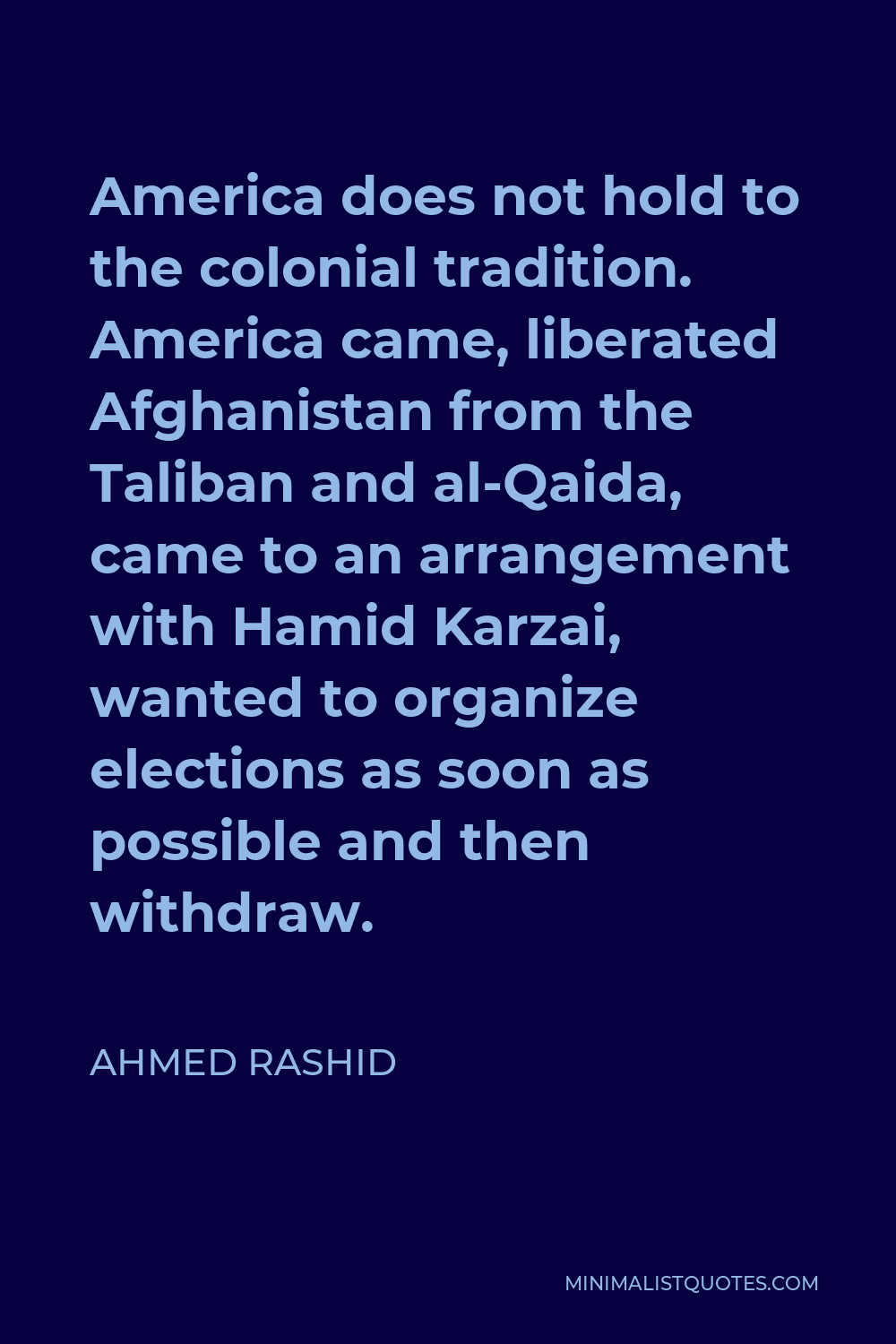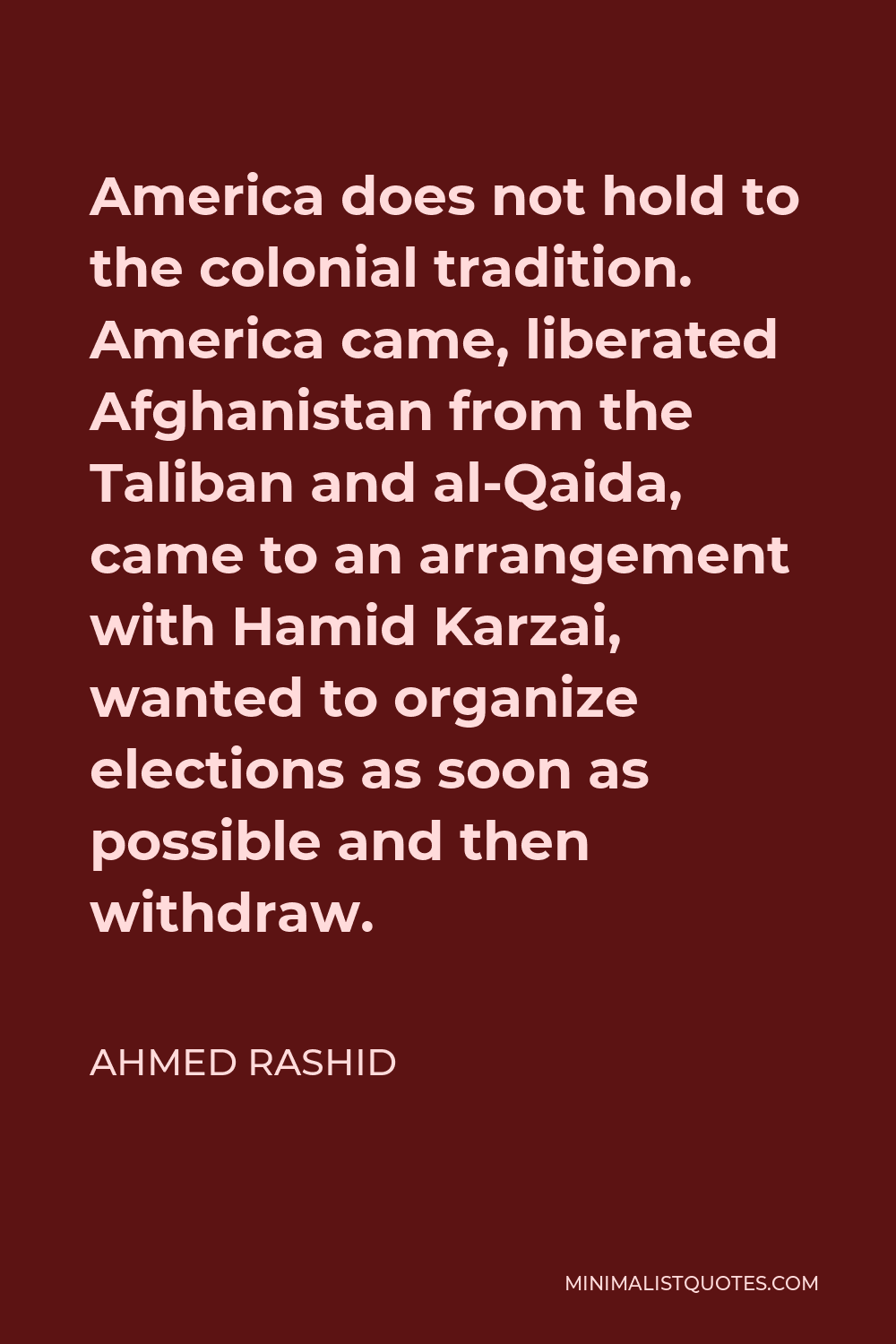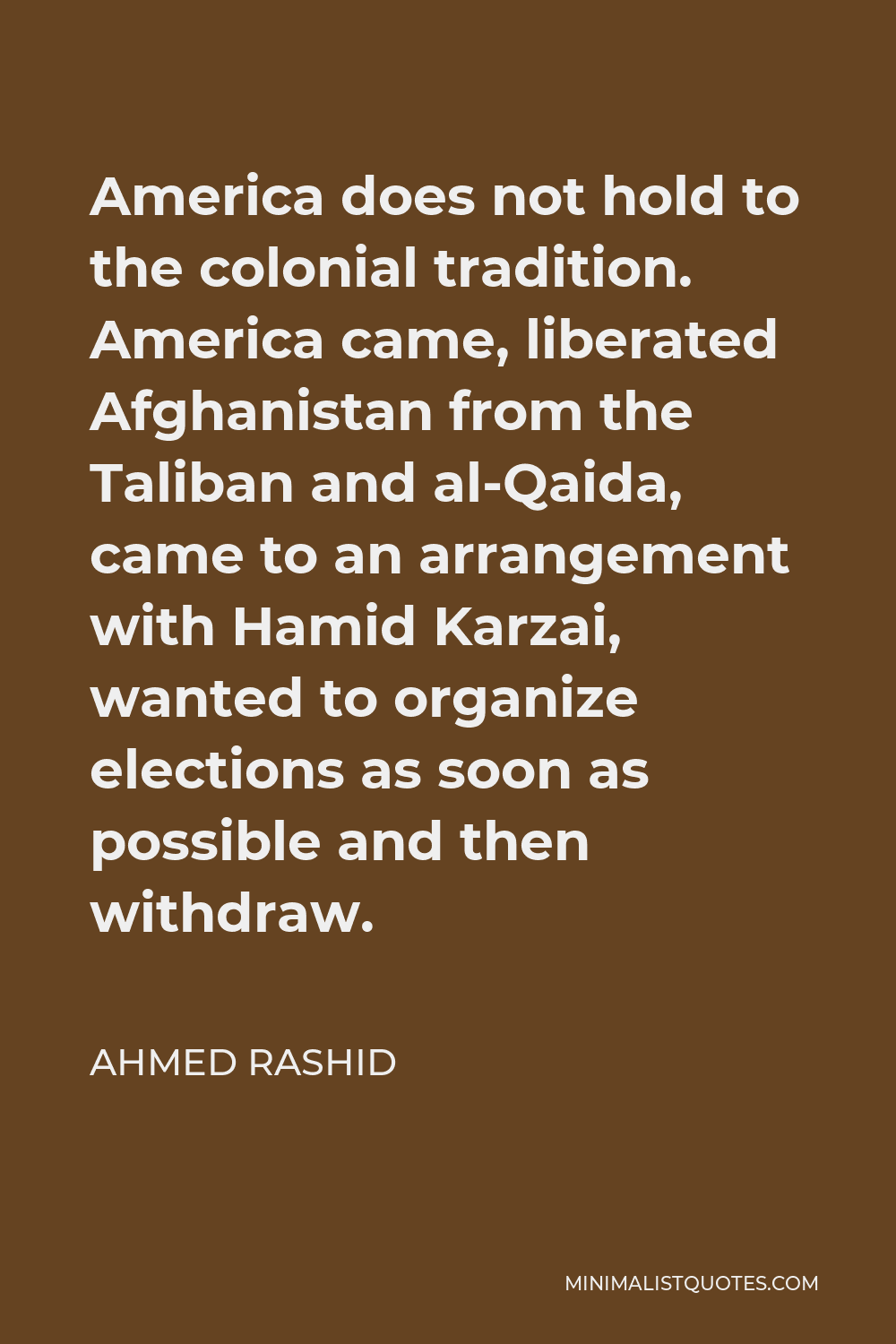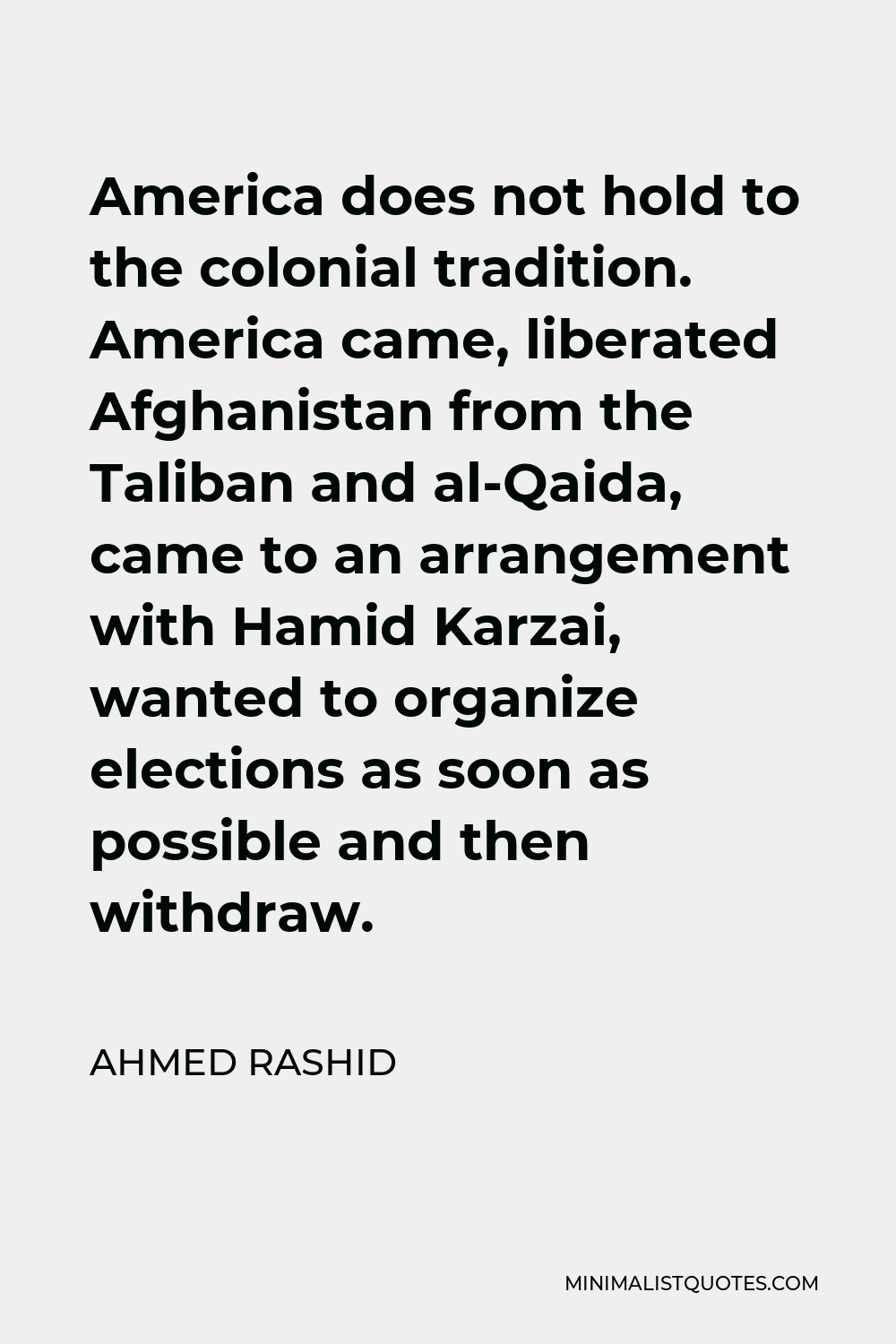I think within a year or so, perhaps, if 9/11 had not happened, in Afghanistan would have been a very broad-based general uprising against the Taliban.
AHMED RASHIDAmerica does not hold to the colonial tradition. America came, liberated Afghanistan from the Taliban and al-Qaida, came to an arrangement with Hamid Karzai, wanted to organize elections as soon as possible and then withdraw.
More Ahmed Rashid Quotes
-





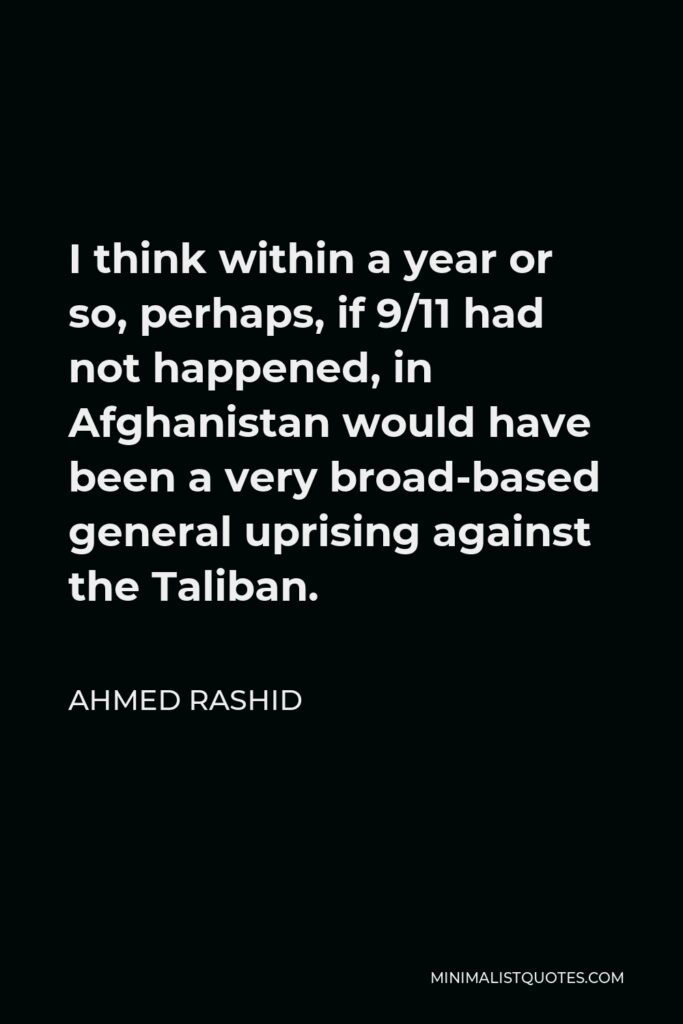

-





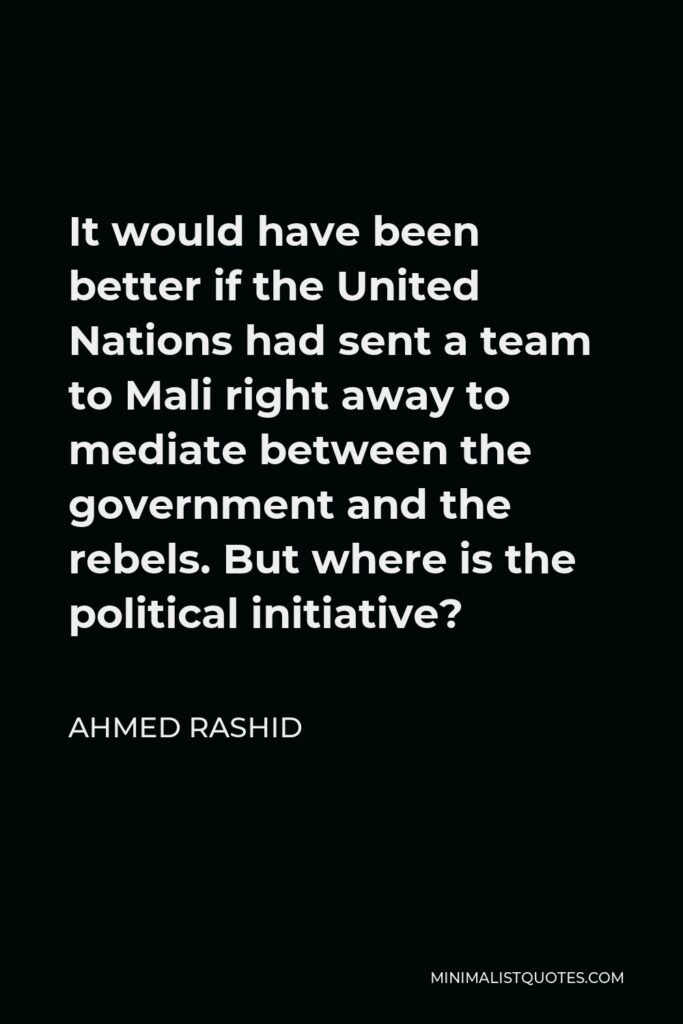

It would have been better if the United Nations had sent a team to Mali right away to mediate between the government and the rebels. But where is the political initiative?
AHMED RASHID -





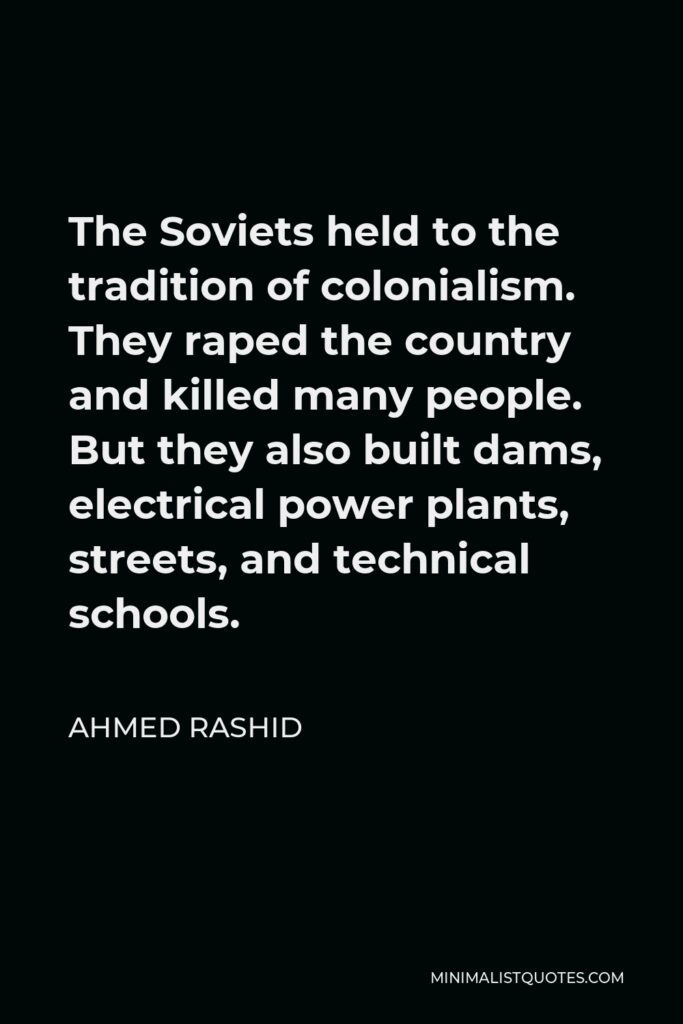

The Soviets held to the tradition of colonialism. They raped the country and killed many people. But they also built dams, electrical power plants, streets, and technical schools.
AHMED RASHID -





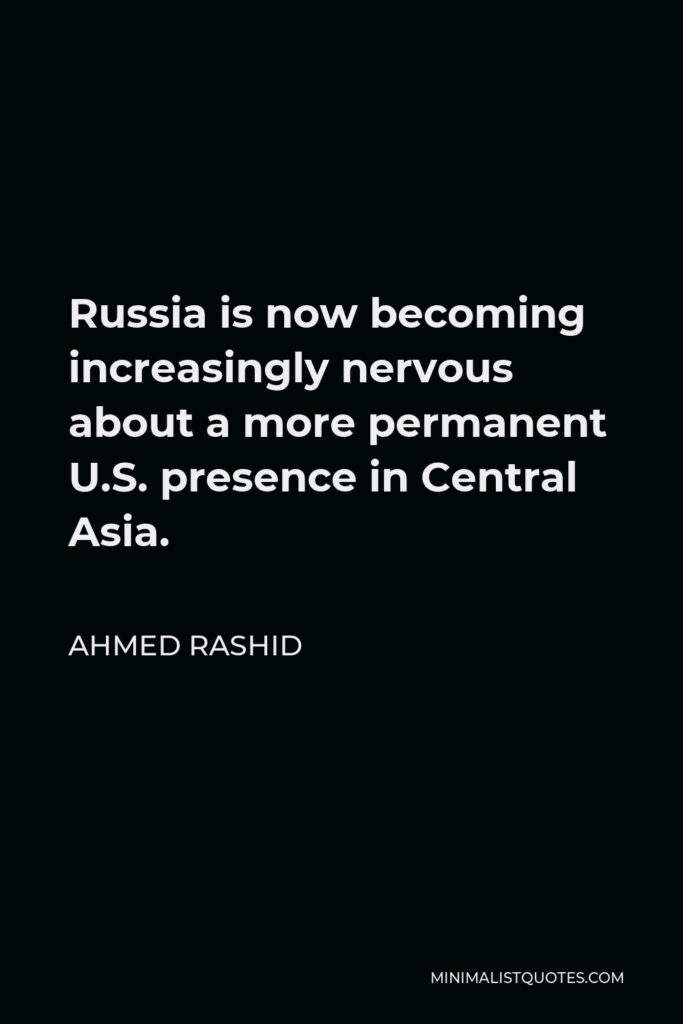

Russia is now becoming increasingly nervous about a more permanent U.S. presence in Central Asia.
AHMED RASHID -





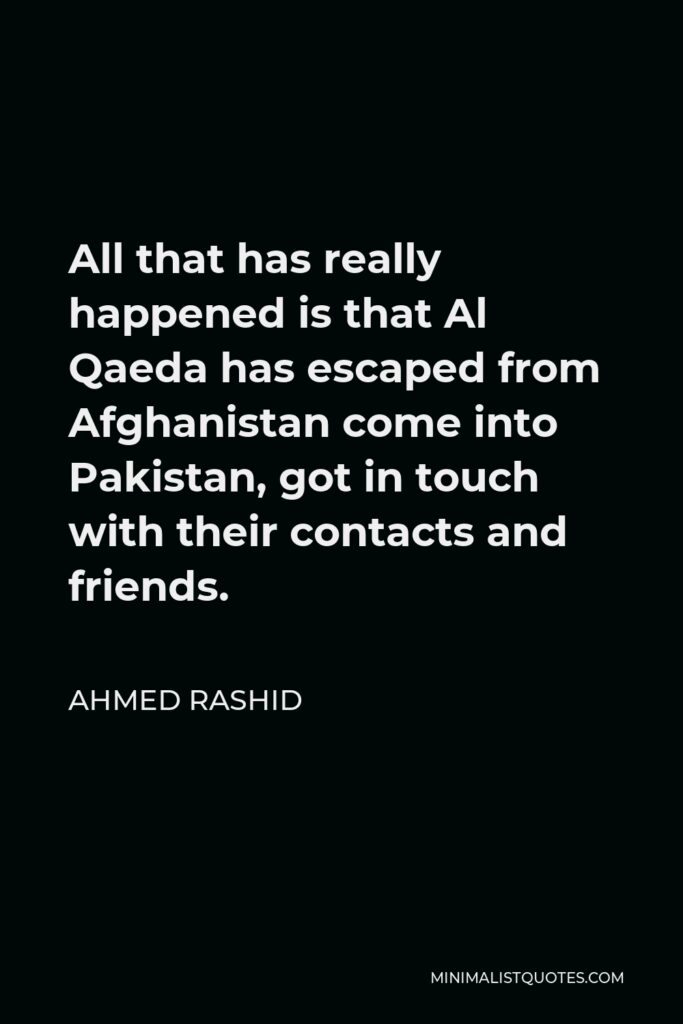

All that has really happened is that Al Qaeda has escaped from Afghanistan come into Pakistan, got in touch with their contacts and friends.
AHMED RASHID -





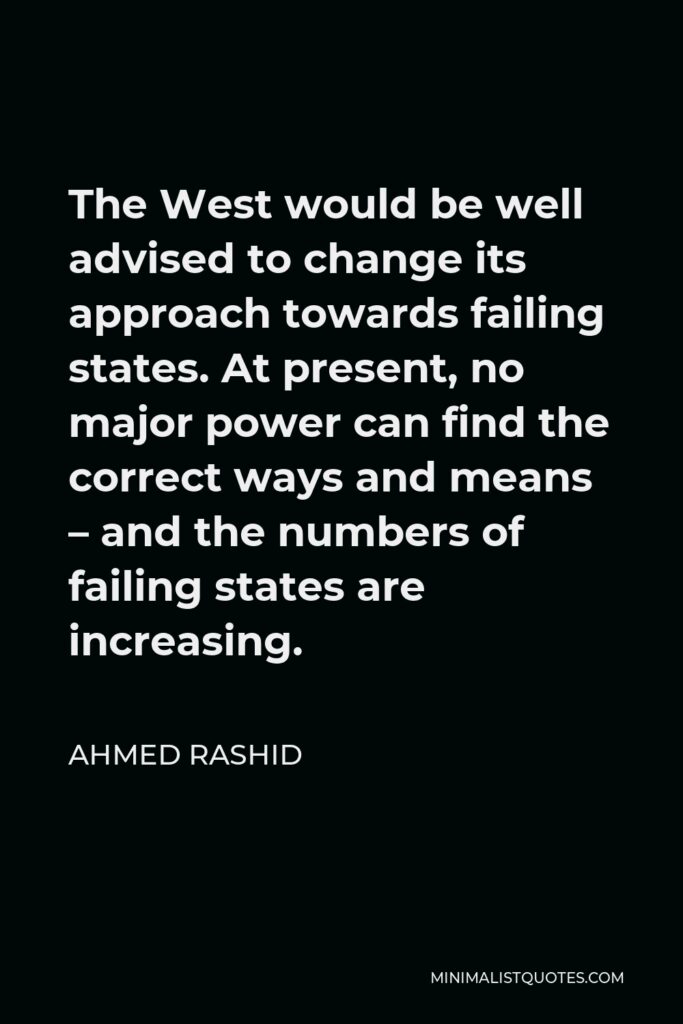

The West would be well advised to change its approach towards failing states. At present, no major power can find the correct ways and means – and the numbers of failing states are increasing.
AHMED RASHID -





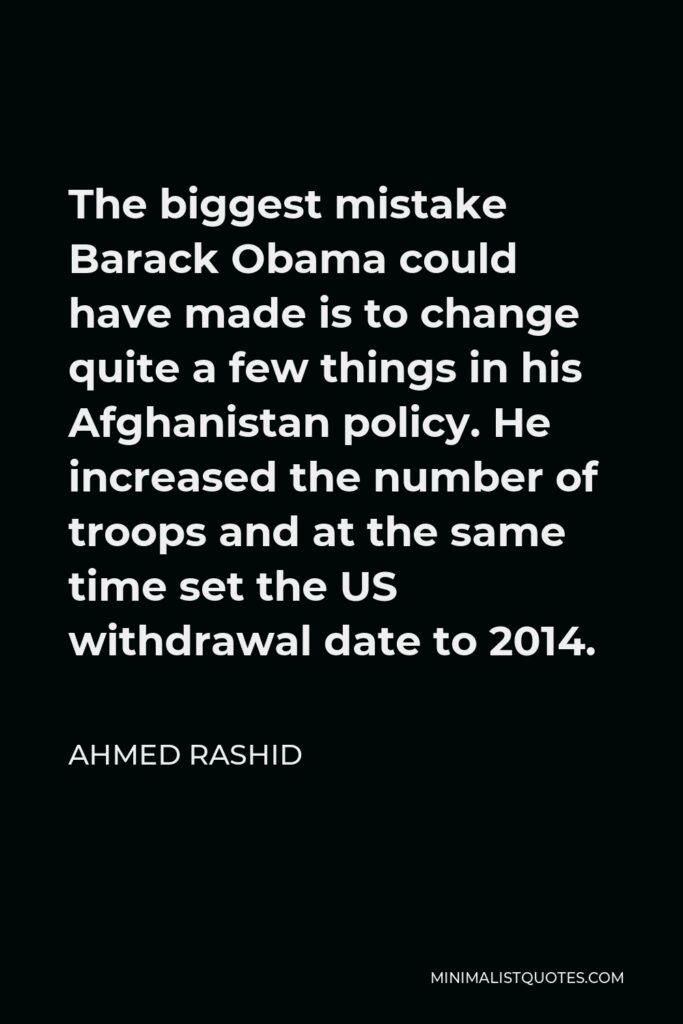

The biggest mistake Barack Obama could have made is to change quite a few things in his Afghanistan policy. He increased the number of troops and at the same time set the US withdrawal date to 2014.
AHMED RASHID -





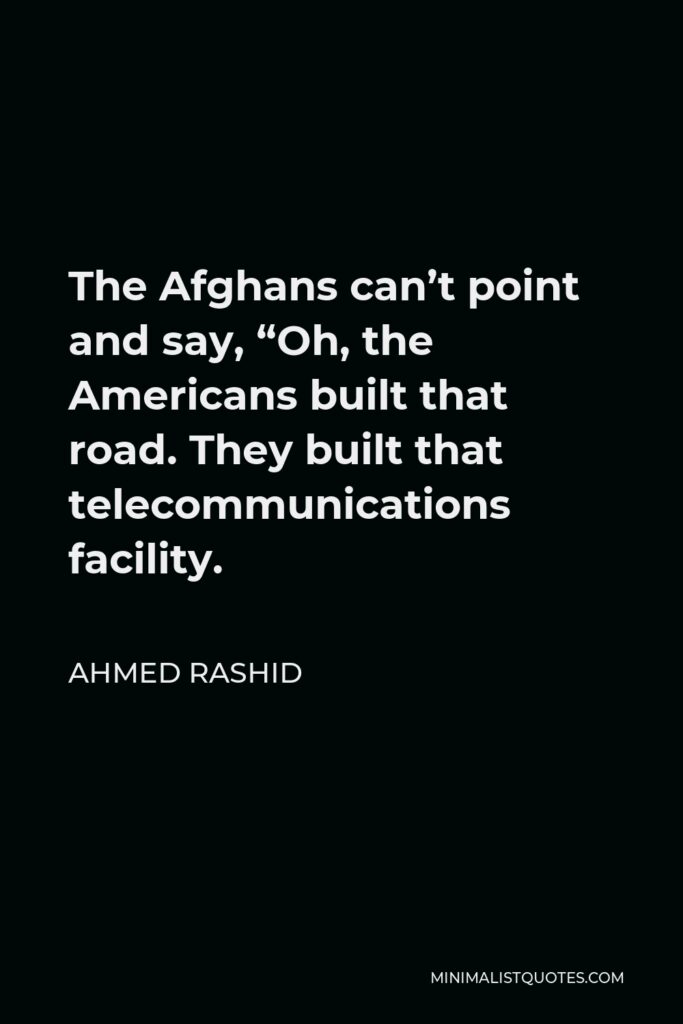

The Afghans can’t point and say, “Oh, the Americans built that road. They built that telecommunications facility.
AHMED RASHID -





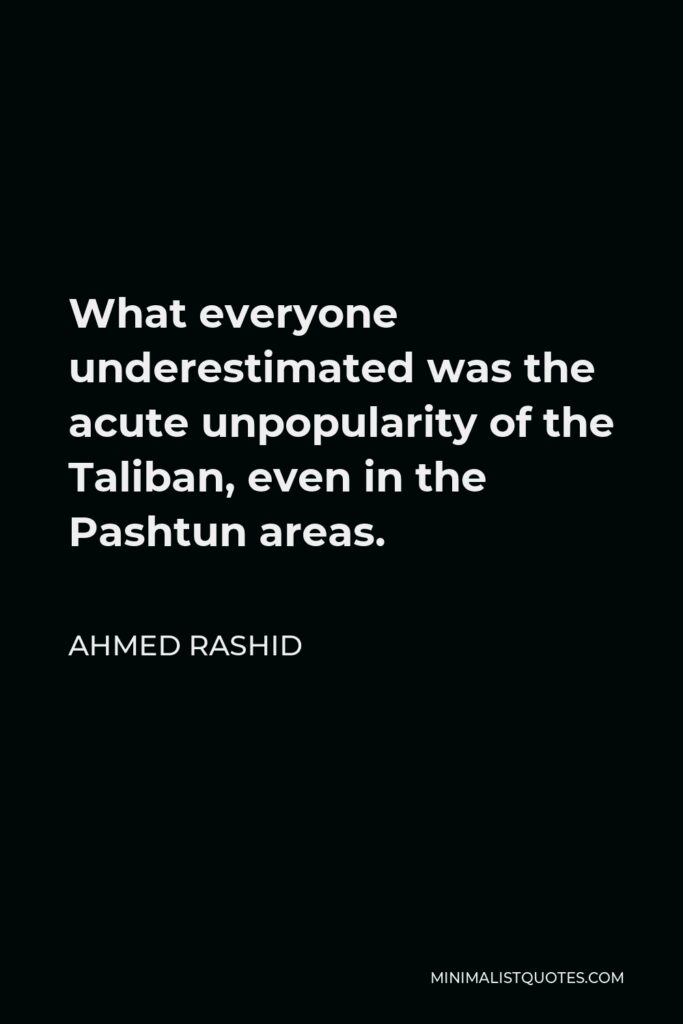

What everyone underestimated was the acute unpopularity of the Taliban, even in the Pashtun areas.
AHMED RASHID -





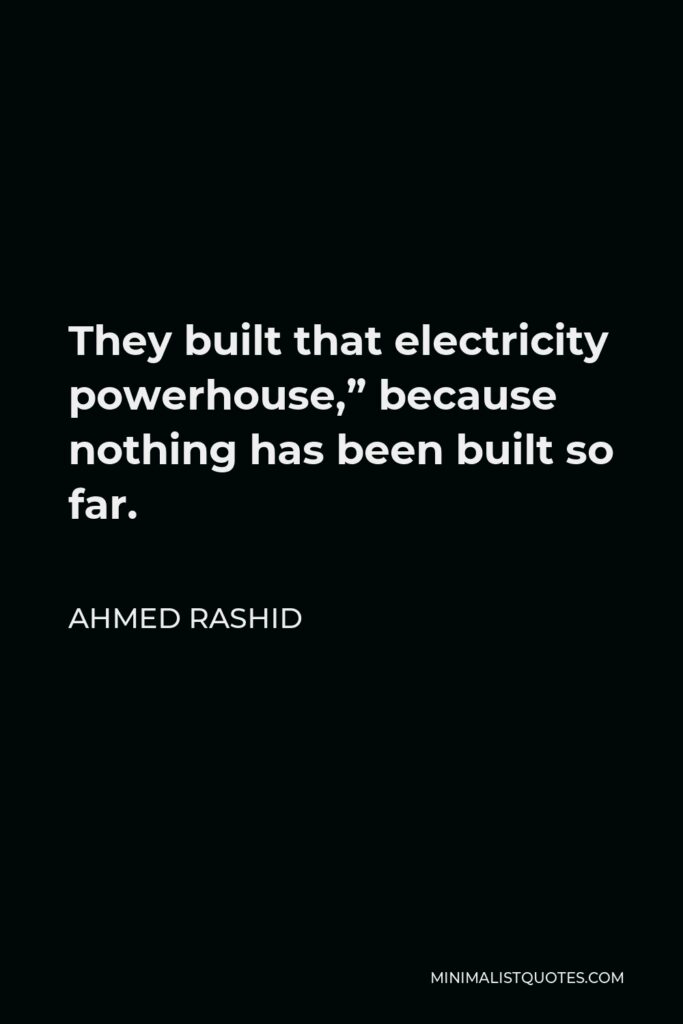

They built that electricity powerhouse,” because nothing has been built so far.
AHMED RASHID -





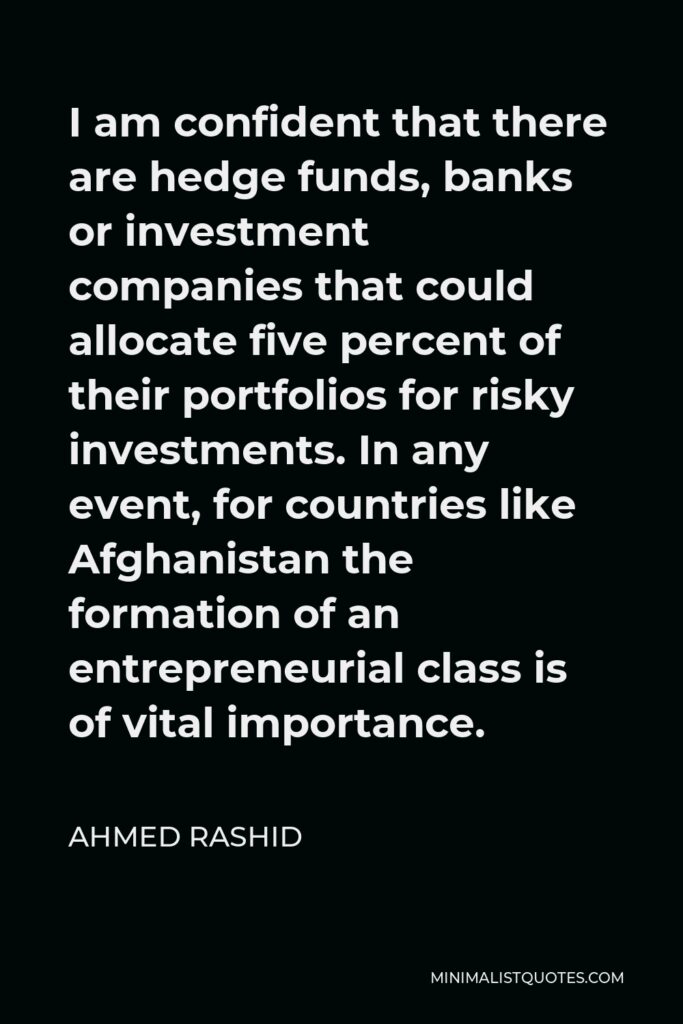

I am confident that there are hedge funds, banks or investment companies that could allocate five percent of their portfolios for risky investments. In any event, for countries like Afghanistan the formation of an entrepreneurial class is of vital importance.
AHMED RASHID -





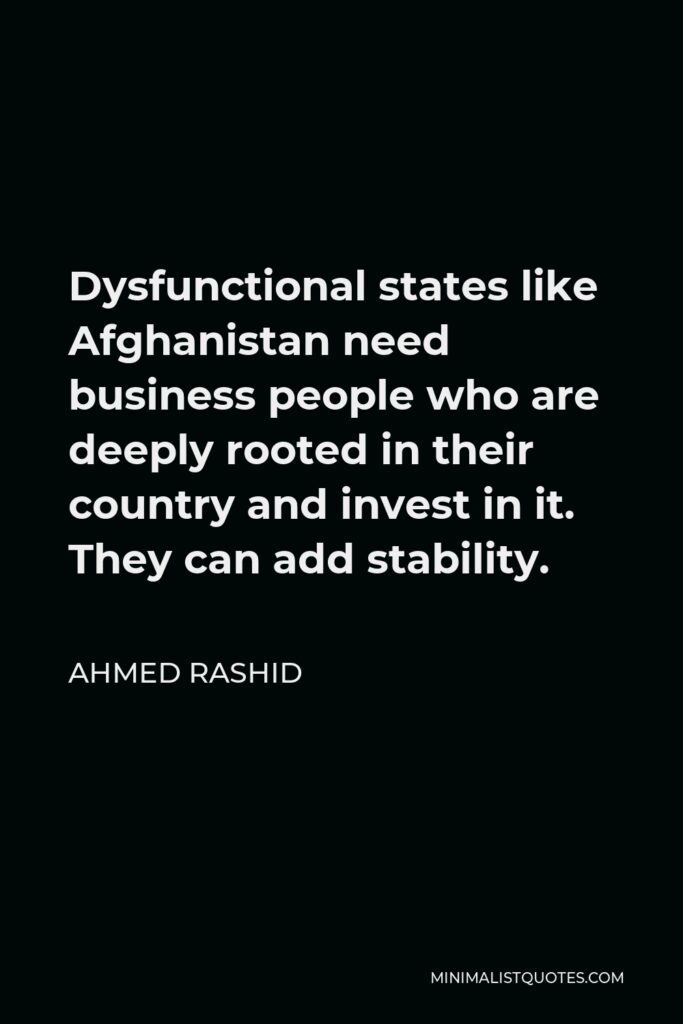

Dysfunctional states like Afghanistan need business people who are deeply rooted in their country and invest in it. They can add stability.
AHMED RASHID -





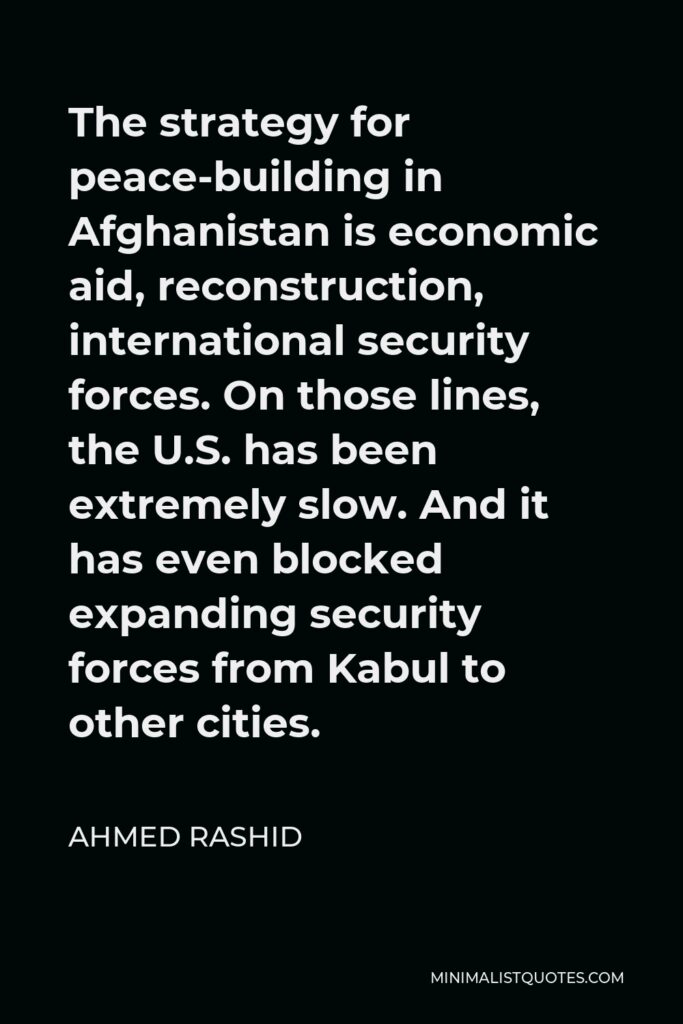

The strategy for peace-building in Afghanistan is economic aid, reconstruction, international security forces. On those lines, the U.S. has been extremely slow. And it has even blocked expanding security forces from Kabul to other cities.
AHMED RASHID -





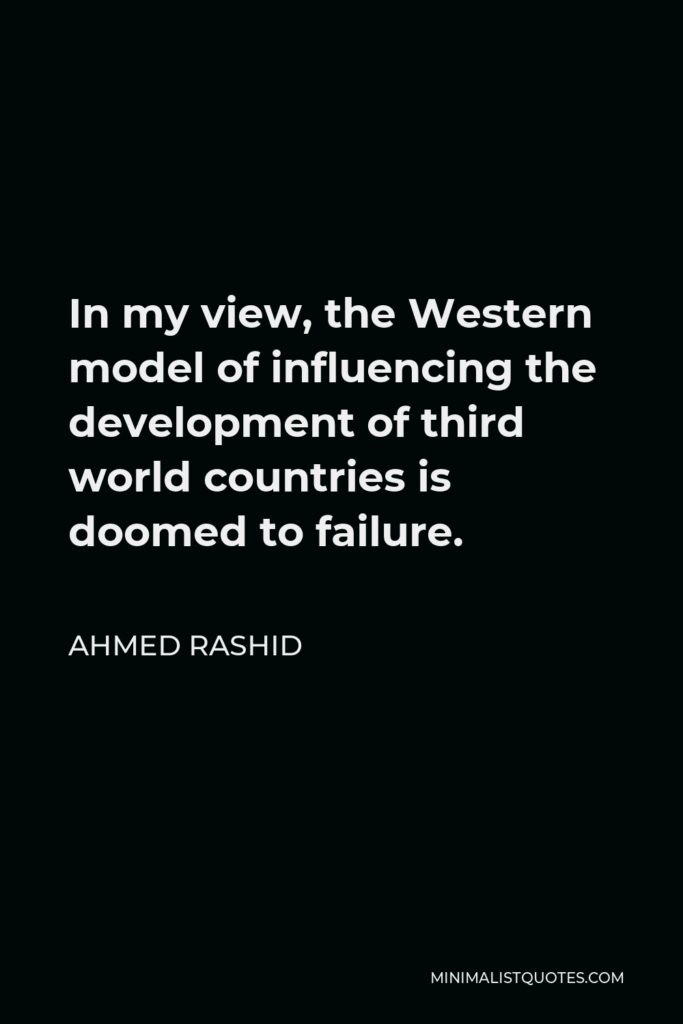

In my view, the Western model of influencing the development of third world countries is doomed to failure.
AHMED RASHID -





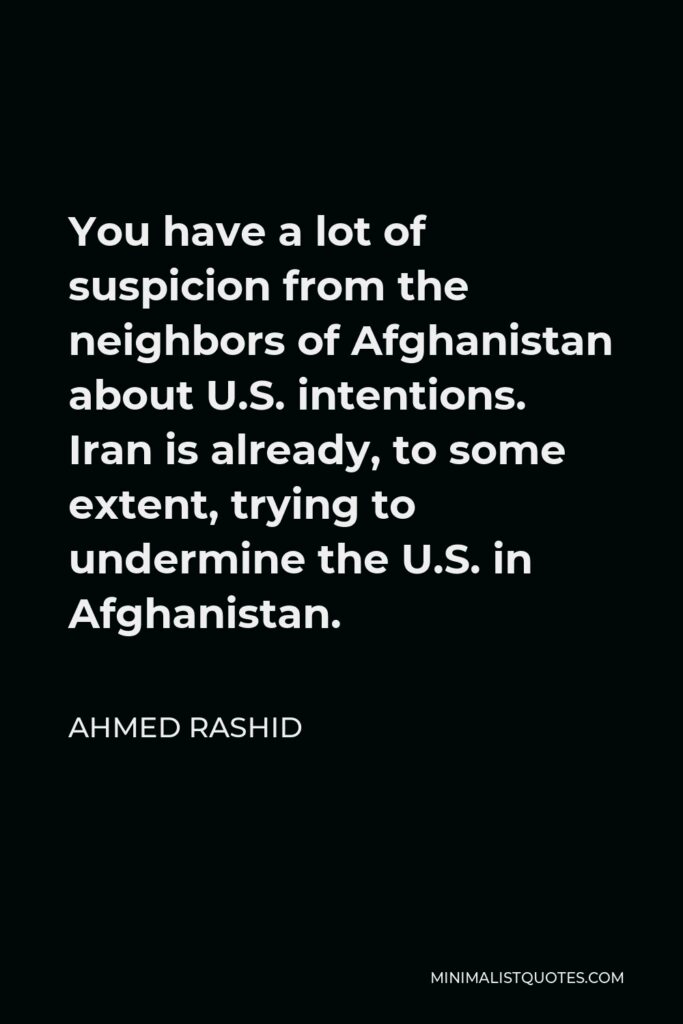

You have a lot of suspicion from the neighbors of Afghanistan about U.S. intentions. Iran is already, to some extent, trying to undermine the U.S. in Afghanistan.
AHMED RASHID -





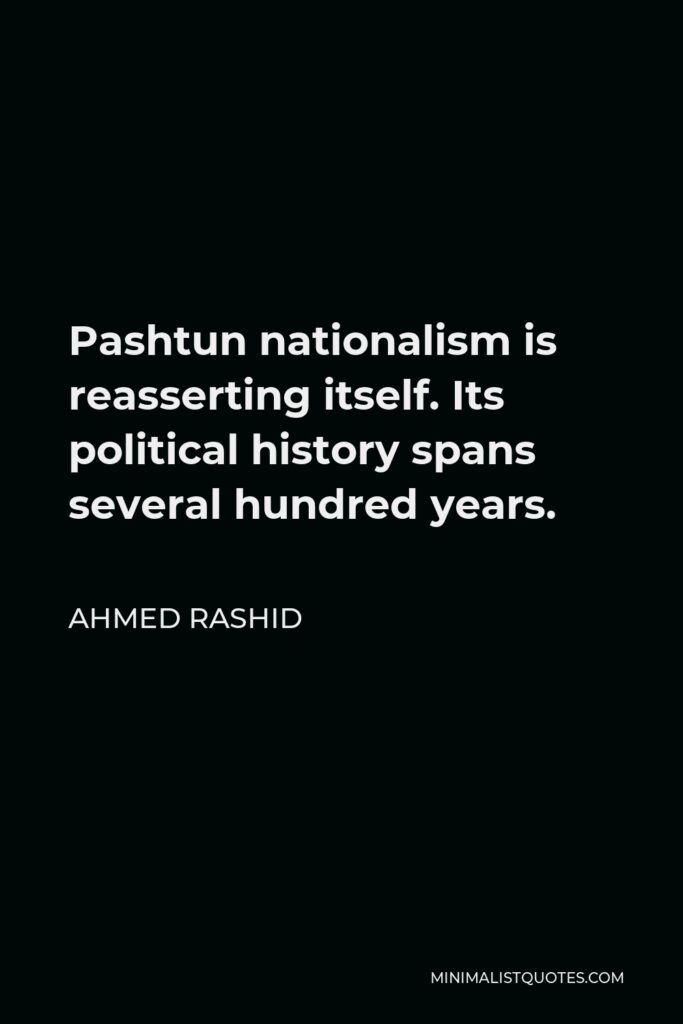

Pashtun nationalism is reasserting itself. Its political history spans several hundred years.
AHMED RASHID
